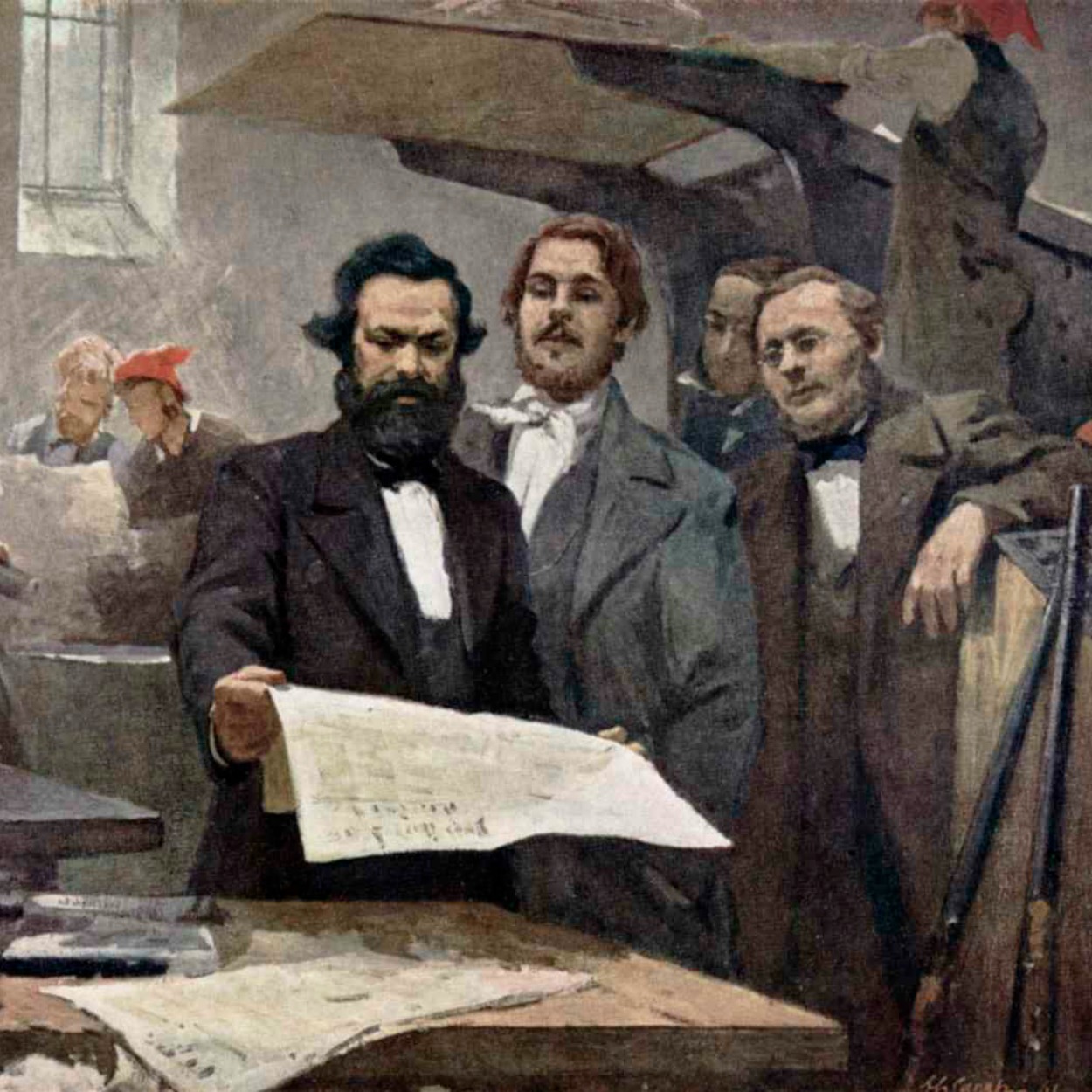“Why does everything have to be so sad and boring?” queried a minor character in the first episode of Andor, Disney’s most recent contribution to the Star Wars canon. Answering this question is increasingly important to everyone who is becoming increasingly disillusioned with modern life. By my estimation, that is just about everyone these days, and with good reason.
Andor is a TV series set in the world of Star Wars that has critics and casual viewers fawning over almost every aspect of its production. The actors, the sets, the music, and the characters have been woven into an engaging story that some have called the best Star Wars storytelling since the original trilogy. The music is a personal favorite, but one component that has deservedly drawn a large portion of the acclaim is the villain. In Andor, the villain is quite simply the Evil Empire at the height of its powers before a moisture farmer bravely turned off his targeting computer and trusted his feelings. Watching the show, I was struck by how the Empire not only victimized the innocent but damaged the very people who were loyal to the evil emperor. Imperial agents determined to stamp out disorder and rebellion strut down sterile hallways bickering and vying for recognition and promotion while their underlings fester dissent through their draconian tactics designed to enforce the rule of law. As the Empire tried to leverage every drop of potential resources in its quest for power, the bureaucrats tasked with making this dream a reality lost their souls. Devoid of creativity and empathy but brimming with malicious passion, the bad guys were quite simply bad at their jobs.
Watching the show, I found myself considering another science fiction story written not long ago in a country not too far away. There are enterprising scientists who build a rocketship, industrialists with nefarious purposes, frightening aliens on other worlds that seem dangerous but reveal a civilized and ethical intelligence, shadowy government research labs experimenting on children, torture and assault of innocent civilians, evil interdimensional spirits, paradisical planets full of exotic vegetation, and a host of popular science fiction-fantasy tropes that seem well at home in a new tv show or comic book movie. Yet this trilogy of books was written by the Oxford professor and Christian Apologist Clive Staples Lewis.
What happens when a society accepts positivism wholeheartedly?
Lewis’s argument is narrative which makes discussing his points without spoiling difficult, but there are a few themes worth discussing before reading the books that will enhance the experience of a first-time reader.
The first theme is positivism, a philosophy that is hugely influential but little spoken of outside the academy. Positivism is a Philosophical movement, or by this stage, a tradition that had its genesis in the work of Auguste Comte, the father of sociology. There are two main swings of positivism.
1. All things that are true must have logical proof, indisputable evidence, or other rational justification. Thus positivism has an obvious conflict with concepts like faith.
2. True things with such proof will have direct application in human ethics, sociality, and politics.
In summary, the scientific method is used as the foundation for determining human destiny in all its spheres. Such a worldview will struggle to respect the irrational, mystical, or otherwise un-modern human sensibilities that have often been used to describe a deep sense of faith or religiosity in individuals or societies. While positivism doesn’t deny that such things may exist, it suggests that we don’t think about them. As Comte said, “[Positivism] might look like atheism because it excludes God from all further thought.” Positivism, in that respect, is materialistic, meaning it only accommodates a material or physical universe that has a presence that can be predicted by natural laws. In other words, there can be no consideration of an immortal soul or something like a Holy Ghost in a purely positivist universe.
What happens when a society accepts positivism wholeheartedly? Three seemingly paradoxical but intimately related phenomena: progression, individualism, and bureaucratization.
“Progress” has a new, specific meaning; it is the injection of “positive” steps derived from positivistic methods into the way we run our governments, societies, families, and lives. In other words, the individual life of a human should be turned to bringing about more positivism, and the human epoch is observed as a linear progression from ignorance and mysticism toward enlightenment and progress. This progress would come through the escalation of understanding and application of the predictable natural forces at work in the universe.
Now consider how positivism would change the perceived value of a religiously defined human being to a solely material individual who functions according to laws capable of prediction. The difference is between a being capable of changing the universe and a being who is subjected to the universe.
How, then, does such a modern human being then desire to engage with other humans? With an order, predictability, efficiency, and alignment with the invisible forces and other formal structures designed to mimic the order of the natural world in human society. Functionally this becomes bureaucracy, committees, statistics, and the dreaded pile of forms. From a positivist point of view, bureaucracy is the natural application of scientific rigor to coordinating and synchronizing the wasted human efforts of an unenlightened age towards a more efficient future. But consider what is lost when we turn everything over to bureaucracies. Might we turn out to be like the alien race of Vogons sprung from Douglas Adams’ delightful imagination?
They wouldn’t even lift a finger to save their own grandmothers from the Ravenous Bugblatter Beast of Traal without an order, signed in triplicate, sent in, sent back, queried, lost, found, subjected to public enquiry, lost again, and finally buried in soft peat for three months and recycled as firelighters.
Why is it that bureaucracies turn us into morally flaccid, unimaginative cogs? Unfortunately for those that dream of a totally bureaucratic society, there is a fatal flaw; individuals will apply those same values that created the bureaucracy to determine how to generate value in their own lives, placing their interests ahead of the needs of the organization. Individuals seeking control, influence, and mastery of their lives then find themselves caring about themselves more than others and caring a lot about how much power they have within an organization. And their power will come from balancing an adherence to the structure with greed to manipulate it to their own ends. The noted ethicist Alastair McIntyre used this phenomenon to define individualism which is more than just being selfish but being selfish through the manipulation of others in social structures for your own benefit. While the organization may be driven to order some aspect of society, the individuals will find themselves driven to climb the ladder before them, not acting in the best interest or the goals of the bureaucracy. Thus the best way to enhance your role in an organization is to oversee its never-ending expansion. As Psyco Sam from Taika Waititti’s The Hunt for the Wilderpeople wisely observed. “Form fillers That’s how they get ya’. Anything you want to do in life, you’ve gotta fill out a form.” In Andor, watch for every time some imperial soldier or worker discusses raising their rank and improving their prestige. I invite you to simultaneously observe how little these people care about their emperor.
Individuals who have turned their souls over to the blandness of positivism become bland themselves.
In Andor, the main character Cassian experienced this phenomenon firsthand when he was unceremoniously sentenced to a labor camp to meet a quota. The camp is terrifying as it is sterile, as efficient as it is numbing. The prisoners build the same components, drink the same nutrient broth, and wear the same paper outfits. They are even forced to motivate and manage each other in a twisted prison experiment. They have turned human beings into an assembly line to such an extent that the guards have lost their moral fiber. Cassian figured this out as he brazenly and openly planned a mass prison break, “Nobody is listening!”
Lewis’s argument hinges on this rot having a real and intentional force driving it forward in the same way that we might consider the good guys to have a transcendent champion. There is a very real villain in the story driving their evil plans prompting a response from the righteous. The struggle transcended human nature into a cosmic war of good and evil.
On the individual level, this evil is manifested in the most obvious ways. Individualistic, bureaucratic, and “modern” people will have lost all sense of caring for others and become consumed by the quest for popularity, power, and position. It is then that individuals who have turned their souls over to the blandness of positivism become bland themselves and devoid of the sensibilities required to notice that anything is wrong. The following passage is a peek by Lewis into one of the disturbingly empty minds of one of the villains of the third book.
When had he ever done what he wanted? Mixed with the people whom he liked? Or even eaten and drunk what took his fancy? The concentrated insipidity of it all filled him with self-pity. In his normal condition, explanations that laid on impersonal forces outside himself the responsibility for all this life of dust and broken bottles would have occurred at once to his mind and been at once accepted. None of these occurred to him now. He was aware that it was he himself who had chosen the dust and broken bottles, the heap of old tin cans, the dry and choking places.
It is Lewis’s insight that these individualistic modern people are bland and boring on the inside and out. They have turned their ethical calculations over to the bureaucracy that scaffolds their empty lives and, with no internal moral compass, have turned to vile debauchery as they just try to feel something in their hollow hearts. In their competing quests for assimilation and power, they have shed their individuality, deepest desires, and most meaningful relationships. What strikes me is the call to do what we really want but in a manner that is not selfish. True selfishness then comes when we sacrifice who we really are to get with the popular crowd because, ultimately, that path will lead to forsaken loyalty and broken relationships with people we really ought to be connecting with.
Sorry for the spoiler, but Lewis’s story concludes with a victory for good over evil. I might add that the climax is extremely violent and not what I expected from the kindly Oxford Don. In a world that has become more individualistic, positivist, and bureaucratic than in the time of Lewis, I don’t feel qualified to give any practical advice.
One last point that is vital to a nuanced understanding that even Lewis didn’t foresee is that this struggle crosses political spectrums; this isn’t about left vs. right. Consider two more recent dystopian mythologies that carry the same warnings. Lois Lowry’s The Giver, aside from being the bane of many a high-school English class, paints a picture of a society so determined to be efficient and scientific that the colors are literally scrubbed out of the consciousness of the people and infanticide had become the norm when the new life was considered to be un-useful. Now consider Margert Atwell’s Handmaid’s Tale, which has found fame as a popular and well-reviewed tv series. That story is of a theocratic society that has imagined a world where radical Christians have successfully enacted some kind of twisted sharia law. Women wear color-coded robes, and their precious wombs are deemed the property of the state. In both examples of dystopian myth, human evil has run wild and purged the world of variety and freedom.
What we can do in our day-to-day lives is remain true to each of our unique virtues, resist the temptation to chase the popular crowd, and determine our identity not in our worldly accomplishments found by climbing the ladder but in a genuine relationship with our Savior and Creator. Similarly, I find a powerful sense of realness and richness in meaningful and loving relationships with family, friends, and co-workers. As I sit in line at the DMV or submit an application for exemption for some class I don’t want to take, my mind often turns to the prophecy of a Savior who will come again, rule personally on the earth, and banish all forms of human hierarchy and control. If there is any form filling in the millennium, I will be sorely disappointed.

















